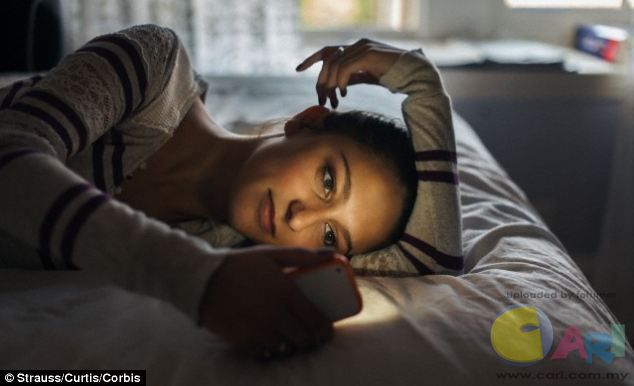|
Gone are the days when people used to curl up with a steaming cup of cocoa and novel before bedtime. The average person is now more concerned about watching TV and catching up on social networks updates before turning in for the night. New research suggests the average nightly ritual consists of checking social media networks four times, watching 17 minutes of television - and attempting to read a few pages of a book.  Experts have previously said that in order to get a good night’s sleep, most people need to unwind for at least half an hour away from technology before trying to get some shut-eye. But the study by Newcastle-based memory foam mattress company Ergoflex found that most Britons are quite active when it comes to bedtime rituals. Over 2,500 men and women from all over the UK were quizzed about how they prepare for bed and the survey revealed that just under three quarters of them check Twitter or Facebook within half an hour of going to bed. More than half of those surveyed watch a TV programme or film, while a similar number – 63 per cent – prepare an outfit for the next day. Just over half of people read a book and a similar number make their bed before climbing into it to sleep. Study participants estimated how long each task took them and the survey revealed that the people who checked for social media updates, did so just over four times in the half an hour before they went to bed, with Facebook the most popular choice.  According to the results, 17 minutes was the average amount of time that a person watched TV before going to sleep and three quarters of people who watched TV said they were doing other tasks at the same time. People who laid out outfits for the next day, said it typically took them seven minutes to choose their clothes and of those that tried to read, the average number of pages consumed was just three. Jed MacEwan, Managing Director Ergoflex, said: ‘It was interesting to see that so many Britons have the same nightly ritual in the half an hour leading up to them going to sleep – although we’re a little surprised that the average nightly ritual is so active.' Experts suggest spending time away from technology before sleeping.  A 2012 study found that using an electronic gadget for just two hours before bed can cause sleep problems. Researchers at the Lighting Research Centre (LRC) at Rensselaer Polytechnic Institute believe displays on phones and computers cause the suppression of melatonin – the chemical that controls the body’s clock. 'Our study shows that a two-hour exposure to light from self-luminous electronic displays can suppress melatonin by about 22 per cent,' said Mariana Figueiro, associate professor at Rensselaer and director of the LRC’s Light and Health Programme. 'Stimulating the human circadian system to this level may affect sleep in those using the devices prior to bedtime,' said Figueiro. Dailymail
|
ADVERTISEMENT